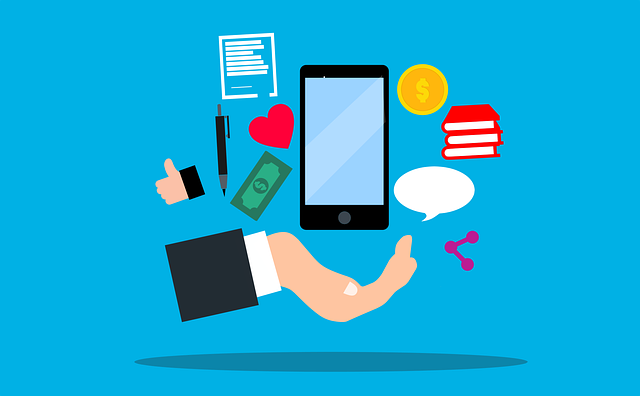Are you tired of receiving generic, impersonal emails that leave you feeling like just another name on a list? Well, you’re not alone. In today’s fast-paced digital world, customers crave personalization and relevance in their interactions with brands. And when it comes to email marketing, personalization is no longer just a nice-to-have; it’s a must-have.
In fact, studies have shown that personalized emails have a 26% higher open rate and a 760% increase in revenue. So why are so many businesses still sending out one-size-fits-all emails? It’s time to break free from the generic and start enhancing your customer experience and loyalty through email personalization.
In this article, we will explore the importance of personalization in email marketing and how it can significantly impact customer loyalty. We’ll dive into the strategies and techniques you can use to collect and utilize customer data, segment your email list, and create engaging content that resonates with each individual customer.
Plus, we’ll discuss the power of automation and dynamic content for personalization at scale. Get ready to take your email marketing to the next level and leave your customers feeling valued and loyal.
Key Takeaways
- Personalized emails have a higher open rate and can increase revenue by 760%.
- Collecting and utilizing customer data is crucial for successful email personalization.
- Email list segmentation allows for targeted messaging and can generate up to 760% more revenue.
- Creating engaging and relevant content, such as personalized product recommendations, enhances the customer experience.
Understanding the Importance of Personalization in Email Marketing
Discover the power of personalization in email marketing and how it can transform your customer experience into something truly extraordinary!
Data driven personalization is the key to creating a tailored and engaging email campaign that resonates with your audience. By using personalization strategies, you can deliver targeted content that speaks directly to each individual customer, increasing open rates, click-through rates, and ultimately, conversions.
Personalized emails generate six times higher transaction rates compared to non-personalized emails, proving the effectiveness of this approach.
Collecting and utilizing customer data for personalization is the next step in creating a truly personalized experience. By leveraging data on customer preferences, behaviors, and demographics, you can create highly targeted campaigns that are relevant and valuable to each customer.
Collecting and Utilizing Customer Data for Personalization
By harnessing and analyzing customer data, you can tailor your strategies to meet individual preferences and increase brand affinity. Studies have shown that personalized messages have a 26% higher open rate, making data optimization essential for successful email marketing.
Here are four reasons why collecting and utilizing customer data for personalization is crucial:
-
Improved customer engagement: Personalized emails resonate with customers, leading to higher engagement rates and increased click-through rates.
-
Enhanced customer experience: By using customer data to personalize emails, you can deliver relevant content that adds value to each customer’s journey, improving their overall experience.
-
Increased conversion rates: Personalized emails that address customer needs and interests can significantly boost conversion rates and drive more sales.
-
Long-term customer loyalty: When customers receive personalized emails that cater to their preferences, they develop a stronger connection with your brand, leading to increased loyalty and repeat purchases.
By understanding the importance of collecting and utilizing customer data, you can effectively segment your email list for targeted messaging in the next section.
Segmenting Your Email List for Targeted Messaging
One effective way to optimize your email marketing strategy is by segmenting your email list to deliver targeted messages tailored to specific groups of recipients.
Email segmentation allows you to divide your audience based on demographics, behavior, preferences, or purchase history, enabling you to send highly personalized and relevant content. By understanding your customers’ needs and interests, you can craft messages that resonate with them, increasing engagement and conversion rates.
In fact, studies have shown that segmented email campaigns can generate up to 760% more revenue than non-segmented ones. By implementing email segmentation as part of your personalization strategy, you can create a more personalized and meaningful experience for your subscribers, fostering customer loyalty and driving long-term success.
Transitioning into the next section, creating engaging and relevant content for each customer is crucial for maximizing the impact of your segmented email campaigns.
Creating Engaging and Relevant Content for Each Customer
Crafting personalized and captivating content for every individual on your email list ensures that each customer feels seen, understood, and excited to engage with your brand.
By leveraging customer segmentation, you can tailor your messages to address their unique needs and interests. This allows you to provide personalized recommendations that resonate with each customer, increasing the likelihood of conversion and fostering loyalty.
Incorporating dynamic content such as personalized product recommendations, exclusive offers, and relevant blog articles further enhances the customer experience. Data shows that personalized emails generate 6 times higher transaction rates compared to generic ones.
With the help of automation tools, you can streamline the process and deliver personalized content at scale. By doing so, you’ll cultivate stronger relationships and drive long-term customer loyalty.
Now, let’s explore how leveraging automation and dynamic content can take your email personalization to the next level.
Leveraging Automation and Dynamic Content for Personalization at Scale
Using automation and dynamic content is like having a personal assistant who magically knows exactly what each customer wants, resulting in mind-blowingly relevant and engaging emails. Automating personalization allows you to tailor messages based on customer data, preferences, and behaviors, ensuring that every interaction feels personalized and meaningful. By leveraging automation, you can save time and resources while still delivering highly targeted content to your customers. Dynamic content takes personalization a step further by allowing you to create different versions of an email based on specific customer attributes. This means that each customer receives a customized email that speaks directly to their interests and needs. Incorporating automation and dynamic content into your email marketing strategy not only improves efficiency but also boosts customer engagement and loyalty. Transitioning into the next section, measuring and analyzing the impact of email personalization on customer loyalty provides valuable insights for further optimization.
Measuring and Analyzing the Impact of Email Personalization on Customer Loyalty
Measuring and analyzing how email personalization impacts customer loyalty provides valuable insights for optimizing future strategies. By tracking the effectiveness of personalized offers in email campaigns, you can enhance customer retention and maximize the impact of your marketing efforts.
Here are three reasons why measuring and analyzing the impact of email personalization is crucial for boosting customer loyalty:
-
Improved engagement: Personalized emails that cater to individual preferences and needs have higher open and click-through rates, leading to increased customer engagement and loyalty.
-
Increased conversions: By tailoring offers based on customer behavior and preferences, you can boost conversions and drive more sales, ultimately increasing customer loyalty.
-
Enhanced customer satisfaction: Personalized emails make customers feel valued and understood, fostering a positive relationship and increasing the likelihood of repeat purchases and long-term loyalty.
By closely monitoring the impact of email personalization, you can continually refine and optimize your strategies to build stronger customer relationships and drive business growth.
Frequently Asked Questions
What are some common challenges faced by businesses when implementing email personalization strategies?
When implementing email personalization strategies, businesses face several common challenges.
One of the main challenges is the implementation process itself, as it requires significant time and resources.
Additionally, businesses may struggle with gathering and organizing customer data effectively, which is crucial for personalization.
Another challenge is ensuring that the personalized content is relevant and engaging to the recipients.
Finally, businesses must also overcome the hurdle of maintaining data privacy and security while implementing email personalization strategies.
How can businesses ensure data privacy and security when collecting customer data for personalization?
To ensure data privacy and security when collecting customer data for personalization, businesses must prioritize data protection and implement compliance measures. Safeguarding customer information is crucial to building trust and maintaining a positive reputation.
By employing encryption techniques, secure data storage, and regular security audits, businesses can mitigate the risk of data breaches. Additionally, complying with relevant data protection regulations and obtaining customer consent for data collection and usage will further enhance customer trust and loyalty.
Are there any recommended best practices for segmenting an email list effectively?
To effectively segment your email list, you need to be a sharpshooter. Use effective segmentation techniques like demographic, behavioral, and psychographic data to create targeted email campaigns that hit the bullseye.
By tailoring your messaging to specific customer segments, you can increase engagement, drive conversions, and build customer loyalty. Don’t waste your shots by sending generic emails. Take aim and watch your email marketing efforts hit their mark.
How can businesses ensure that their personalized email content is engaging and relevant to each customer?
To improve engagement and ensure customized content relevance, businesses must understand their customers’ preferences and behaviors.
Use data-driven insights to create personalized email content that speaks directly to each customer’s interests and needs.
Incorporate dynamic content that adapts based on user behavior, such as product recommendations or exclusive offers.
By tailoring emails to individual customers, businesses can increase engagement, build loyalty, and drive conversions.
What are some key metrics and tools that can be used to measure the success and impact of email personalization on customer loyalty?
Measuring the effectiveness of email personalization on customer loyalty requires key metrics and tools.
Impact assessment can be done through metrics like open rates, click-through rates, conversion rates, and customer lifetime value.
Tools like email marketing software and analytics platforms provide valuable insights on these metrics.
By tracking and analyzing these data points, you can visually see the impact of email personalization on customer loyalty, allowing you to make data-driven decisions to enhance your email strategy.
Conclusion
In conclusion, personalization in email marketing is crucial for enhancing customer experience and loyalty. By collecting and utilizing customer data, segmenting email lists, and creating engaging content, businesses can provide a tailored experience to each customer.
Leveraging automation and dynamic content allows for personalization at scale. An interesting statistic to consider is that personalized emails deliver six times higher transaction rates than non-personalized emails. This visual representation highlights the significant impact of email personalization on customer engagement and loyalty.
Don’t miss out on the opportunity to strengthen your customer relationships through personalized email marketing.








